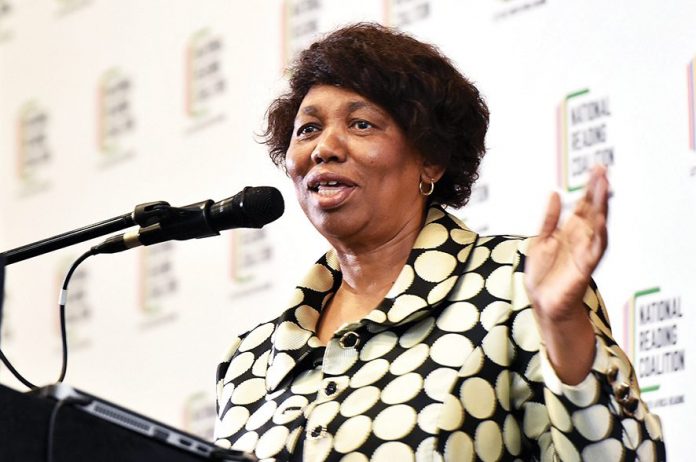The Council for General and Further Education and Training (Umalusi) has not found any systemic errors and irregularities that compromised the quality and integrity of the matric exams for 2023.
The quality assurance body has, however, expressed concern regarding the quality of printing and errors introduced by printing in examinations administered by the Department of Basic Education (DBE).
Umalusi made the announcement on Monday, giving the DBE, the Independent Examination Board (IEB), and the South African Comprehensive Assessment Institute (Sacai) the green light to release the results for National Senior Certificate (NSC) later this week.
A total of 919 532 pupils wrote the NSC exams from October to November 2023 under the three examining authorities.
The majority of the exams were administered by public examination body, DBE, with 898 520 candidates, 181 143 of whom were studying part-time.
The private assessment bodies accounted for 21 012 of the candidates, with 15 186 pupils writing under the IEB and 5 826 with Sacai.
Results to be announced on Thursday
Basic Education Minister Angie Motshekga will announce the matric results for the Class of 2023 on Thursday, ahead of the release of the marks on Friday.
In addition to the NSC exams, the Department of Higher Education and Training (DHET) administers three national exams.
These are the National Certificate: Vocational (Levels 2 to 4), National Accredited Technical Education Diploma (Nated 3 and 4), and the General Education and Training Certificate: Adult Basic Education and Training (GETC: Abet) examinations.
The IEB and Sacai also administered the (GETC: Abet) to 842 students. The total of candidates who sat for the NCV, Nated and GETC: Abet with DHET are 229 930.
The chairperson of the Umalusi council, professor Yunus Ballim, said the process of administering the national examinations was not without problems.
“There were errors of omission and commission and that will happen in a system as large at that,” Ballim said.
“It is probably unrealistic to expect that if you are administering exams to 1.1-million candidates around the country, that it will go completely without error.
“We do expect some of that error to occur. What is important is that Umalusi wants to know about it.
“Also, we have determined that given the nature of the errors and irregularities, they were not of a systemic nature to warrant non-release of the examinations results.”
Errors, irregularities not systemic
In his opening remarks, Umalusi CEO Dr Mafu Rakometsi referred to reports of group cheating in two provinces, poor quality of printing and printing errors which resulted in omissions or illegible questions.
Poor translation quality from English to Afrikaans was also cited by Rakometsi as being one of the areas of concern in the NSC exams.
However, Umalusi said the errors and irregularities identified during the DBE, IEB and Sacai examinations were not systemic and did not compromise the overall credibility and integrity of the exams.
DBE candidates implicated in irregularities will have their marks blocked pending the results of investigations by the DBE and verification by Umalusi, which speak to the severity of some of irregularities in the public matric exams.
Candidates who wrote exams administered by the IEB and Sacai and were involved in irregularities will have their results nullified.

One exam not approved
The vocational, technical and adult education examinations were plagued by many challenges, but not systemic to affect the credibility and integrity of the exams.
Ballim revealed that one examination administered by the DHET was not approved.
Candidates who wrote the Motor Trade Theory N2 will rewrite the exam due to widespread irregularities that were recorded.
He said: “Of the 57 instructional offerings that were submitted by the DHET for standardisation, Umalusi did not standardise Motor Trade Theory N2.
“The reason is that the DHET administered an incorrect question paper to 850 candidates who wrote at 98 out of 100 examination centres.
“It was only candidates at one centre each in Gauteng and KwaZulu-Natal who wrote the correct version of the question paper.
“Consequently, the DHET has arranged for this instructional offering to be rewritten on February 6. Thereafter, the results will be submitted to Umalusi for standardisation and approval.”



